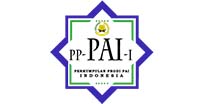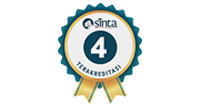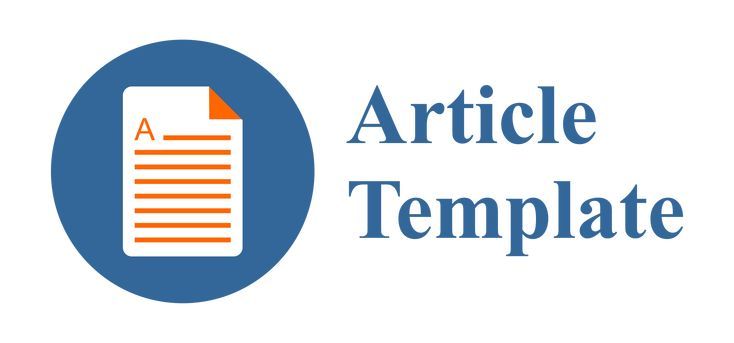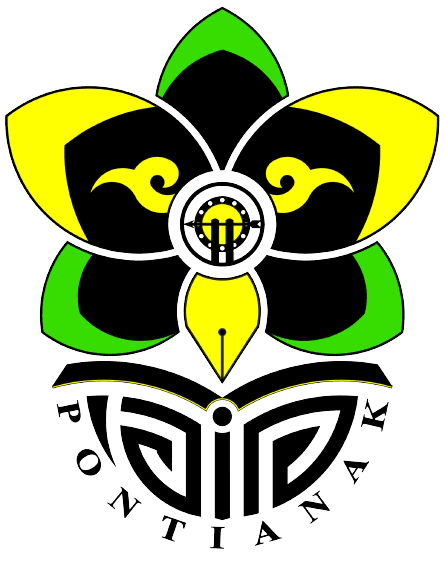The Process of Developing the Islamic Religious Education Curriculum in Schools and Madrasah
DOI:
https://doi.org/10.24260/atturats.v19i2.5171Keywords:
Curriculum Development, Islamic Education, Educational Institutions,Abstract
This research aims to provide a scientific contribution to the development of the curriculum in Madrasahs as a response to the dynamics of changing times that affect various aspects of life, especially in the field of education. Social and technological advancements require innovation and adjustments to the education system, particularly in the curriculum as the main foundation in the learning process. In the context of Madrasah education, curriculum development is strategically important because this institution not only focuses on religious education but must also produce graduates who are flexible, competitive, and aligned with global demands, while upholding Islamic spiritual values. This research applies a qualitative approach with the library research method through an examination of various literature sources related to the research topic. The literature data analysis techniques used include content analysis to identify main patterns and themes from literature documents, comparative analysis to compare curriculum development models between countries or institutions, and thematic analysis to group data based on themes such as technological innovation and spiritual values. The analysis shows that curriculum development includes several crucial stages, such as establishing a development model, evaluating needs and situational context, formulating general and specific objectives (objectives, aims, goals), arranging teaching materials, implementing the curriculum, as well as assessment and feedback on the results of implementation. Furthermore, it was found that most educators still need improvement in their ability to implement the Merdeka Curriculum. Factors such as facilities and infrastructure, as well as the utilization of modern educational technology, for example gamification, also influence the effectiveness of curriculum implementation. Conceptually, this research suggests that the Islamic Religious Education curriculum be designed to be more adaptive, contextual, and capable of integrating religious values with current educational challenges and needs. The results of this research have practical implications for Madrasahs and related parties, such as improving the quality of education through intensive training for educators to master the implementation of the Merdeka Curriculum, including the use of educational technology like gamification to make learning more engaging and effective. Madrasahs can allocate budgets to improve facilities and infrastructure, such as digital laboratories or e-learning platforms, to support the integration of Islamic spiritual values with global challenges. Furthermore, these implications encourage collaboration among Madrasahs to share best practices in curriculum development, so that graduates become more flexible and competitive in the digital era. For related parties such as the Ministry of Religious Affairs and local governments, it is recommended that national policies be strengthened through the preparation of standard guidelines for the development of more adaptive Madrasah curricula, incorporating elements of technological innovation and regular evaluations of their implementation. These policies can include the allocation of special funds for teacher training, infrastructure procurement, and incentives for Madrasahs that successfully integrate Islamic values with modern educational needs. Additionally, regulations are needed to monitor and evaluate the effectiveness of the curriculum nationally, to ensure that Madrasahs can produce graduates ready to compete globally while maintaining their spiritual identity.
Penelitian ini bertujuan untuk memberikan sumbangan ilmiah dalam pengembangan kurikulum di Madrasah sebagai jawaban atas dinamika perubahan zaman yang memengaruhi berbagai aspek kehidupan, terutama di bidang pendidikan. Kemajuan sosial dan teknologi mengharuskan adanya inovasi dan penyesuaian sistem pendidikan, khususnya pada kurikulum sebagai fondasi utama dalam proses belajar. Dalam lingkup pendidikan Madrasah, pengembangan kurikulum sangat penting secara strategis karena institusi ini tidak hanya fokus pada pendidikan agama, tetapi juga harus menghasilkan lulusan yang fleksibel, bersaing, dan sesuai dengan tuntutan global, sambil tetap menjunjung nilai-nilai spiritual Islam. Penelitian ini menerapkan pendekatan kualitatif dengan metode studi pustaka (library research) melalui kajian terhadap berbagai sumber literatur yang berkaitan dengan topik penelitian. Teknik analisis data pustaka yang digunakan meliputi content analysis untuk mengidentifikasi pola dan tema utama dari dokumen literatur, comparative analysis untuk membandingkan model pengembangan kurikulum antarnegara atau institusi, serta thematic analysis untuk mengelompokkan data berdasarkan tema-tema seperti inovasi teknologi dan nilai spiritual. Analisis menunjukkan bahwa pengembangan kurikulum mencakup beberapa tahap krusial, seperti penetapan model pengembangan, evaluasi kebutuhan dan konteks situasional, penyusunan tujuan umum dan spesifik (objectives, aims, goals), pengaturan materi ajar, implementasi kurikulum, serta penilaian dan pemberian masukan terhadap hasil penerapan. Lebih lanjut, ditemukan bahwa sebagian besar tenaga pendidik masih membutuhkan peningkatan kemampuan dalam mengimplementasikan Kurikulum Merdeka. Faktor seperti sarana prasarana dan pemanfaatan teknologi pendidikan modern, misalnya gamifikasi, juga turut memengaruhi efektivitas pelaksanaan kurikulum. Secara konseptual, penelitian ini menyarankan agar kurikulum Pendidikan Agama Islam dirancang lebih adaptif, kontekstual, dan mampu mengintegrasikan nilai-nilai keagamaan dengan tantangan serta kebutuhan pendidikan saat ini. Hasil penelitian ini memiliki implikasi praktis bagi Madrasah dan pihak terkait, seperti meningkatkan kualitas pendidikan melalui pelatihan intensif bagi tenaga pendidik untuk menguasai implementasi Kurikulum Merdeka, termasuk penggunaan teknologi pendidikan seperti gamifikasi untuk membuat pembelajaran lebih menarik dan efektif. Madrasah dapat mengalokasikan anggaran untuk memperbaiki sarana prasarana, seperti laboratorium digital atau platform e-learning, guna mendukung integrasi nilai spiritual Islam dengan tantangan global. Selain itu, implikasi ini mendorong kolaborasi antar-Madrasah untuk berbagi praktik terbaik dalam pengembangan kurikulum, sehingga lulusan menjadi lebih fleksibel dan kompetitif di era digital. Untuk pihak terkait seperti Kementerian Agama dan pemerintah daerah, disarankan agar kebijakan nasional diperkuat melalui penyusunan panduan standar pengembangan kurikulum Madrasah yang lebih adaptif, dengan memasukkan elemen inovasi teknologi dan evaluasi berkala terhadap implementasinya. Kebijakan ini dapat mencakup alokasi dana khusus untuk pelatihan guru, pengadaan infrastruktur, dan insentif bagi Madrasah yang berhasil mengintegrasikan nilai-nilai Islam dengan kebutuhan pendidikan modern. Selain itu, diperlukan regulasi untuk memantau dan mengevaluasi efektivitas kurikulum secara nasional, guna memastikan Madrasah mampu menghasilkan lulusan yang siap bersaing global sambil menjaga identitas spiritual.
Downloads
References
Alfani, ZA (2024). The Influence of the Talaqqi Method on the Ability to Memorize Surah Al-Adyat in Early Childhood. Pelangi: Journal of Early Childhood Islamic Thought and Research, 6(1), 1–23. https://doi.org/10.52266/pelangi.v6i1.2600
Ali, E. Y. (2025). Analysis of Teachers' Difficulties in Developing CP, TP, and ATP in Teaching Modules in Elementary Schools. Ideguru : Journal of Teacher Scientific Works, 10(1), 304–308.
Amelia, S., & Dahlan, Z. (2025). Evaluation of the development of the Islamic education curriculum for students. Journal of Tarbiyah Generation: Journal of Islamic Education, 4(1), 40–45. https://doi.org/10.59342/jgt.v4i1.549
Asykur, M., Zauman, W. O. R., Abdurahman, Aiman, M., & Khair, A. (2025). Transformation of the Independent Curriculum in Islamic Religious Education: An Analysis of Opportunities, Challenges, and Implementation Strategies. Al-Qiyam Journal, 6(1), 264–272. http://ojs.staialfurqan.ac.id/alqiyam
Awan Setiawan, S., STAI Syekh Jangkung, Mp., Pai, G., Merdeka, K., Islamic Religion, P., Learning, T., & Belajar, K. (2024). The challenge of Pai teachers is to apply an independent curriculum in Islamic religious education. / Journal of Educational Innovation Madrasah Ibtidaiyah, 3(1), 49–64. http://ejournal.pgmi-syekhjangkung.ac.id/index.php/jurnal-JIPMI
Bakar Abu Yunus, Wahyullah Rijal Syarifur, S. I. M. (2024). The Philosophy of Educational Progressivism. Journal of Science Student Research, 53(9), 1689–1699.
Chusnul, C. (2022). Development of Islamic Education Curriculum (Theoretical and Philosophical Analysis).
Desy, N. (2024). The Design of Islamic Religious Education Curriculum Development in Elementary Schools Reviewed from Technological Factors. Journal of Thematic Education, 5(1), 33–45.
Dzikrul Hakim, Nur Ahid, F. Z. Q. H. (2023). Development of religious education curriculum: between schools, Islamic boarding schools and madrasas. Source: Journal ..., 2(1), 72–79. https://journal.iainlhokseumawe.ac.id/index.php/Pase/article/view/2700
Ependi, A., Pahrudin, A., Jatmiko, A., & Koderi. (2024). Study on the Development of the Islamic Religious Education Curriculum (PAI) in Schools and Madrasas. Re-JIEM, 7(2), 1–23.
Fauzan Ahmad, Ayu Mas Sovia, Hadiati Eti, L. Z. (2025). Design of the development of the Islamic religious education curriculum in Indonesia. 9(2), 887–906. https://doi.org/10.35931/am.v9i2.4627
Fauzi, M. (2023). Introduction to PAI Curriculum Development.
Febriana, A. Ri., Putri, D. F., Trisnia, F. R., & Mardiyah. (2025). Strategy for the formulation of vision, mission, goals, challenges, and objectives: A comprehensive approach in Islamic education. Educational Inspiration: Journal of Active Learning, 6(2), 204–218. https://ejurnals.com/ojs/index.php/jpa/article/view/1863
Hamdan. (2021). Development of Islamic Religious Education Curriculum (Theory and Practice).
Hamzah, A., & Mudlofir, A. (2025). Answering the challenges of Islamic religious education teachers in developing technology-based curriculum in the era of society 5.0. Scientific Journal of the Education Profession, 10(3), 2659–2669. https://doi.org/10.29303/jipp.v10i3.3485
Hermawan, SK DIA, & Anggraheni, VTL (2025). Curriculum Development Model in Islamic Religious Education Subjects in Senior High School. Robbayana: Journal of Islamic Religious Education, 3(1), 35–48.
Irfiana, Y., & Quddus, A. (2025). Development of Islamic Education Curriculum in Madrasahs: A Review of the Literature on Challenges and Innovation. Tafhim Al-'Ilmi, 16(02), 355–367. https://doi.org/10.37459/tafhim.v16i02.249
Ismail Mulias, & Amaluddin Amaluddin. (2025). Islamic Religious Education Learning Innovation Facing the Challenges of Globalization. Journal of Humanities, Social Sciences, and Education, 1(4), 1–12. https://doi.org/10.64690/jhuse.v1i4.187
Isop, S. (2025). Development of Islamic Religious Education Curriculum.
Laana, D.L. (2021). A systematic approach in curriculum administration and management to achieve holistic learning. Inculco Journal of Christian Education, 1(1), 79–90.
Loviana, S., Susilawati, R., Aulia, N. S., Anwar, C., & Anwar, S. (n.d.). Problems of Islamic Religious Education in Madrasah : Analysis of Curriculum Challenges and Teacher Competencies in Mount Guppi Natar Problems of Islamic Religious Education in Madrasah : Analysis of Curriculum and Teacher Challenges. 13(1), 1–12.
Lutfiya, H., Uliya, H., MartafiaPutri, I., & Ngadhimah, M. (2025). History of the Indonesian Education System: Colonial Period, Independence Period, Reformasi Period-Present. Khulasah: Journal of Islamic Studies, 7(2), 170–188. https://doi.org/10.55656/kisj.v7i2.420
Makalalag, N. A., Nangune, K., & Yusnaini. (2025). Challenges in the Implementation of the Independent Learning Curriculum in Pai Learning at SMAN 2 Limboto. Journal of Local Education and Wisdom (JIPKL), 5(1), 197–205. https://jipkl.com/index.php/JIPKL/article/view/224
Mansir, F., & Abas, S. (2024). Position of Islamic Religious Education Curriculum in Schools and Madrasas. Indonesian Journal of Basic Education and Teaching Innovation, 3(2), 64. https://doi.org/10.21927/ijeeti.2024.3(2).64-73
Maulana, A., & Ashimulloh, A. (2025). Exploring the Meaning of Spirituality-Religious Education from the Perspective of the Qur'an (Interdisciplinary Thematic Study of the Story of Zakariyah). Journal of Islam and Education, 1, 50–56.
Mukhlis, M. (2024). Development of the Religious Education Curriculum in Madrasahs. ISLAMIDA: Journal of Islamic Studies, 3(1), 88–112.
Murdani A, M. F., Alvionita, I., Sari HS, D. P., Rahmawati, E. S., Setywati, B. E., Kurniawan, K., & Indrawari, K. (2025). Analysis of Challenges in Developing an Independent Curriculum for PAI Book Teaching Materials in Grade 5 Elementary School. Indonesian Journal of Social and Technological Multidisciplinary, 3(1), 15–20. https://doi.org/10.69693/ijmst.v3i1.349
Ningrum, S., Nurfiani, F., & Ruslan, A. (2024). Educational Philosophy of Progressivism in Character Formation of Elementary School Students. Multidisciplinary Journal of Academic Sciences, 1(6), 408–418. https://doi.org/10.61722/jmia.v1i6.3062
Nirmala, Z., & Zalnur, M. (2023). A critical study of the policies of the Old Order, the New Order, and the Islamic Education Reform Era. Religion: Journal of Religion, Social, and Culture, 1(6), 1404–1423.
Nugroho Wahyu, Chumairoh Lutfi, Hidayatullah Syarif Ahmad, Adibah Zahara Ida, S. M. (2025). Factors, principles, and design of the development of Mar'atus-based multicultural-based pie curriculum. Education : Journal of Education & Teaching Innovation Vol., 5(2), 333–343.
Nurhasanah, & Sukino, A. (2022). The development and problems of the Islamic Religious Education Curriculum (PAI) in Indonesia from time to time. Alwatzikhoebillah Journal: Islamic Studies, Education, Economics, Humanities, 8(2), 142–155. https://doi.org/10.37567/alwatzikhoebillah.v8i2.1517
Nurjadid, E.F., Ruslan, R., & Nasaruddin, N. (2025). Analysis of the Implementation of the Ideology of the Islamic Religious Education Learning Curriculum on Cognitive, Affective, and Psychomotor Development of Students. Indonesian Journal of Education and Learning (JPPI), 5(2), 1054–1065. https://doi.org/10.53299/jppi.v5i2.1309
Nurnaifah, I. I. (2024). Analysis of Teachers' Difficulties in Compiling an Independent Curriculum Toolkit. Journal of Scientific Education, 4(2), 65–73.
Panel, A., Mulia, T., & Adelia, N. H. (2025). Comparative Analysis of the Independent Curriculum in PAI Lessons in Public Schools and Madrasas. Journal of Imperative Syntax: Journal of Social Sciences and Education, 6(1), 80–87. https://doi.org/10.54543/syntaximperatif.v6i1.657
Scott, F. (2024). The Transformation of Islamic Religious Education in Madrasah Towards Education that is Holistic and Relevant to the Demands of the Times. Innovative: Journal of Social Science Research, 4.
Reza Alinata, Winda Atika Sari, & Yuli Kartika Putri. (2024). The Meaning of Education in an Islamic Perspective and Its Relevance to Education in Indonesia. Ihsanika : Journal of Islamic Religious Education, 2(3), 169–182. https://doi.org/10.59841/ihsanika.v2i3.1416
Salwa Rihadatul Aisy, granddaughter of Surahman, & Elan Sumarna. (2024). Exploring the Meaning of Tarbiyah in QS. Ali Imran Verse 79: Muslim Spiritual, Moral, and Social Education. Journal of Semiotics-Q: Studies in the Science of the Qur'an and Tafsir, 4(2), 715–732. https://doi.org/10.19109/jsq.v4i2.24750
Sartika, D., Kusen, K., Sumarto, S., & Darmansyah, R. (2024). Curriculum Development at Madrasah Aliyah Ulul Albab, Lubuk Linggau City. Dirasah : Journal of Islamic Education and Management Studies, 7(1), 18–28. https://ejournal.iaifa.ac.id/index.php/dirasah/article/view/1099
Sayekti, I. C., Hazima, A. A., Safitri, S. I., & Setiadi, A. (2025). Strengthening the preparation of teaching modules for elementary school teachers. Journal of Education and Community Service, 8(3).
Seituni, S., High, S., Health, I., & Abdi, H. (2023). Analysis of the Implementation of the Independent Curriculum Learning Process at SDN 1 Alasmalang. Educational Scholars, 2, 11–19.
Singarimbun, NB (2025). Development of an Islamic Religious Education Curriculum that is Responsive to the Challenges of the Times. JITK: Journal of Tarbiyah and Teacher Training, 3(1), 37–43.
Siti taufik. (2025). Curriculum Development and Innovation. Indonesian Journal of Social Sciences and Education (IJOSSE), 1(3), 120–132.
Tasman, Hamami, K.H. (2023). The design of the development of the Islamic religious education curriculum is centered on PAI subjects. Paramurobi, 6, 27–43.
Utomo, ST (2020). Curriculum Innovation in the Dimensions of the Stages of Islamic Religious Education Curriculum Development. Journal of Islamic Education Research and Thought (JRTIE), 3(1), 19–38. https://doi.org/10.24260/jrtie.v3i1.1570
Yuldafriyenti, Lizi Virma Surianti, Elpita Sari, Rusydi, Karim, S., Wahyuni, S., & Yunaldi, W. (2025). multiculturalism according to Islamic law and its application in education. An-Nahdlah: Journal of Islamic Education, 4(3), 772–784. https://doi.org/10.51806/an-nahdlah.v4i3.663
Zain, M.H., & Sesmiarni, Z. (2025). Principles and Factors Influencing the Development of Islamic Religious Education Curriculum. Findings: Journal of Research and Education Studies, 6(3), 414–423. https://doi.org/10.51178/invention.v6i2.2542
Zulkifli, Z., Pahrudin, A., Jatmiko, A., & Koderi, K. (2024). Concepts and Theories of the PAI Curriculum in Schools and Madrasas. Scientific Journal of Global Education, 5(4), 1578–1593. https://doi.org/10.55681/jige.v5i4.3383
Downloads
Published
How to Cite
Issue
Section
License
Copyright (c) 2025 Wiwin Sunita, Agus Pahrudin, Agus Jatmiko, Koderi Koderi, Imam Syafe'i

This work is licensed under a Creative Commons Attribution-NonCommercial 4.0 International License.











